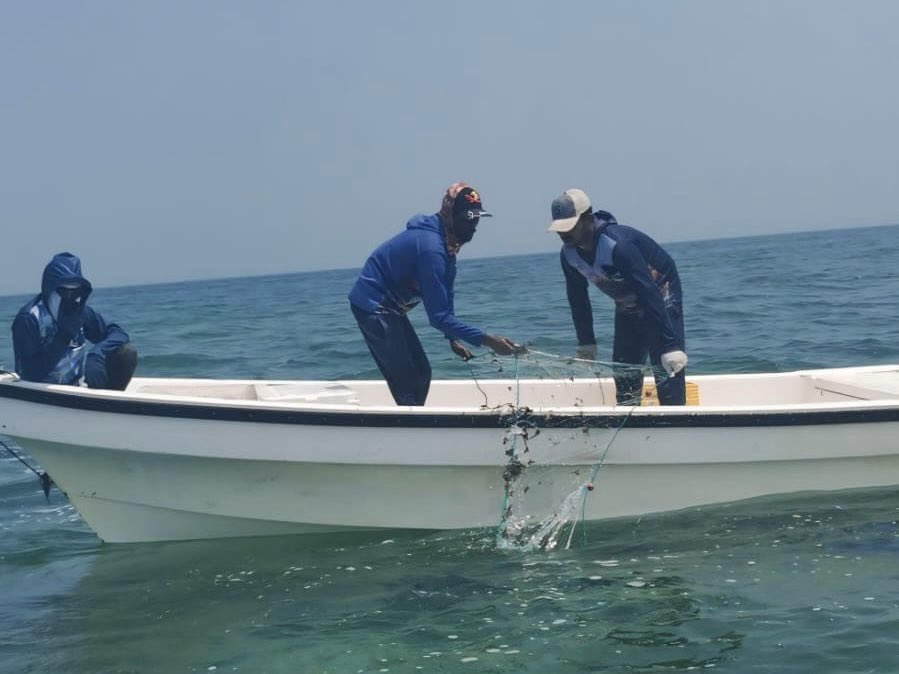The Ministry of Environment and Climate Change in Qatar recently uncovered an environmental violation at Ruwais Port, where fishermen were using three-layer gillnets to fish in coral reef areas. This destructive practice poses a threat to the marine environment and biodiversity, as coral reefs play a crucial role in supporting marine life. The ministry emphasized the importance of following laws and regulations in place to protect the marine environment and natural coral reef sites.
The use of three-layer gillnets in fishing can have detrimental effects on coral reefs, which are vital for maintaining marine ecosystems. These unique ecosystems provide habitat for a wide range of marine species and contribute to the overall health of the marine environment. By fishing in coral reef areas with harmful fishing gear, fishermen are putting these valuable ecosystems at risk and potentially impacting the marine biodiversity in the area.
In response to the environmental violation at Ruwais Port, the Ministry of Environment and Climate Change called on all fishermen and seafarers to comply with laws and regulations aimed at protecting the marine environment. These regulations are put in place to ensure sustainable fishing practices and to safeguard marine biodiversity. By following these guidelines, fishermen can help preserve the delicate balance of marine ecosystems and protect natural coral reef sites for future generations.
The monitoring of environmental violations by the Marine Protection Department demonstrates the commitment of the Ministry of Environment and Climate Change to safeguarding the marine environment and its biodiversity. By taking action against harmful fishing practices and raising awareness about the importance of protecting coral reefs, the ministry is working to ensure the long-term health and sustainability of Qatar’s marine ecosystems. Through enforcement of laws and regulations, the ministry aims to prevent further damage to coral reefs and promote responsible fishing practices.
It is essential for fishermen and seafarers to recognize the impact of their actions on the marine environment and to take steps to minimize negative effects. By using sustainable fishing methods and respecting protected areas such as coral reefs, fishermen can contribute to the conservation of marine biodiversity. This requires a collective effort from all stakeholders involved in the fishing industry to prioritize environmental conservation and ensure the well-being of marine ecosystems.
In conclusion, the Ministry of Environment and Climate Change’s efforts to monitor and address environmental violations in Qatar’s marine environment are crucial for protecting biodiversity and ensuring the sustainability of marine ecosystems. By raising awareness about the importance of preserving coral reefs and enforcing regulations to prevent harmful fishing practices, the ministry is working towards a healthier and more resilient marine environment. It is essential for all individuals involved in fishing activities to adhere to laws and regulations aimed at protecting the marine environment and to support efforts to conserve marine biodiversity for future generations.











